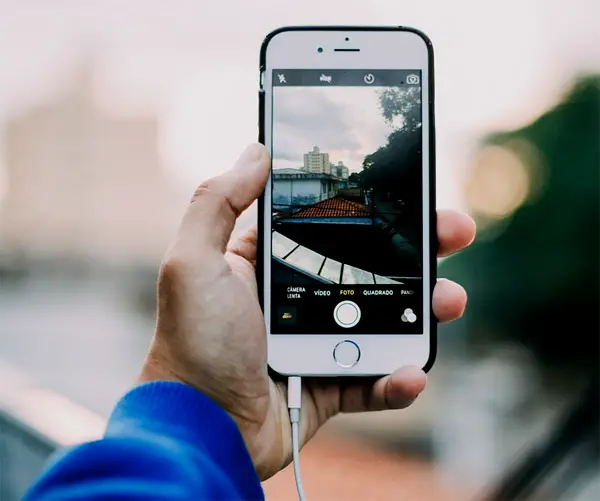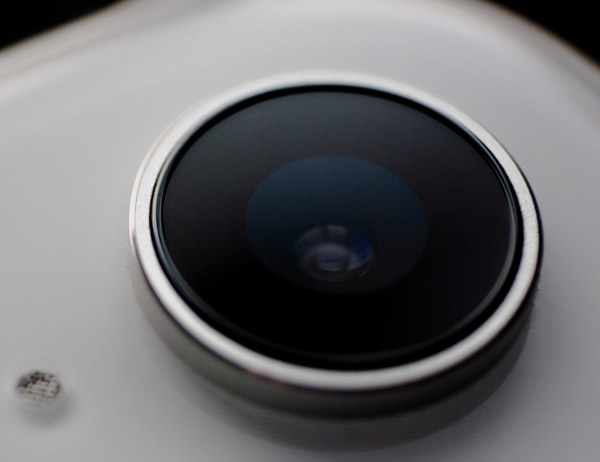You use your mobile phone for everything, take videos of your family, take photos of financial data, videochat with friends. But what if someone could get access to your phone camera and fully control it?

In this article, I will discuss signs that someone is spying on you, tips to unhack your smartphone, some simple steps you can take to protect your device from being hacked, and more. Let’s get started.
Hackers and cybercriminals can hack your phone’s camera without your knowledge. They can gain access to your camera to keep an eye on you or steal sensitive data. The majority of phone applications have access to your camera, which intruders can use to their advantage.
Anyone with the appropriate knowledge and software might utilize your phone’s camera to monitor you. There are tons of spyware out there that could damage your phone. In order to access your phone, a stalker would often need to install spyware on it. They can use emojis, media files, and apps to access your phone.
Hackers can access your camera for nefarious purposes using a number of sophisticated techniques.
The use of a malicious program(malware) is one of the most successful strategies. In order to gain access to your camera, cybercriminals try to install intrusive software on your phone. You won’t even be aware that your device’s camera is being utilized remotely.
One of the dangerous programs used by attackers is the Remote Access Trojan tool (RAT), which allows access to your phone’s camera and all protected information like messages, banking information, and pictures.
The most popular way for cybercriminals to transmit malware to people is through phishing. In order to trick people into clicking on these malicious links, these fraudsters employ social engineering techniques. The hacker can access your smartphone remotely once you install the payload.
A payload is a collection of malicious programs that carries important data and can be used to hack any system to unimaginable limits.
How to detect if your camera is hacked?

You can use your phone’s camera to detect whether it has been hacked. It can be as simple as zooming the picture in and out. If your camera responds too slowly, this could be a sign that it has been hacked.
What can a hacked camera do?
Capture videos
Some spy programs have the ability to remotely activate your camera and secretly record videos. This function of the programs enables them to capture videos and submit them to the hacker’s database.
Take pictures
The hacker can remotely activate your rear camera or front camera. The camera can take pictures that are directly uploaded to an online database that the attacker can also see.
Remote observation
The remote monitoring function that certain spy applications have is far more worrisome than taking pictures or videos. Attackers might be able to activate the phone’s camera, record an individual live, and even transmit the live video to the dark web or streaming services, exposing their location, family members, etc.
How can you know if someone is watching you through your smartphone’s camera?
You have suspicious programs or applications running in the background
Using a spyware app is one possible option if someone wants to view you through your phone’s camera without your consent. If your stalker isn’t a skilled hacker, the software they use may show up as an open application running in the background.
Your indicator light acts strangely
Another way to tell if someone is monitoring you through your phone’s camera is by checking the indicator light on your camera. Every time the camera is in use on modern devices, an indicator light is displayed. You may have a problem if this light suddenly appears even though you are aware that none of your authentic apps are using your phone’s camera.
Your camera acts improperly
If the camera on your phone is acting strangely, someone might be watching you. A camera that sets out frequent alerts, claims to be in use when it isn’t, or activates automatically may be vulnerable.
Your phone’s battery is draining quickly
Video recording consumes a lot of resources, and continuous video recording quickly depletes your battery. Someone might be watching you if your phone is depleting its battery faster than usual.
You notice strange videos and photos appearing on your smartphone
Are you noticing that photos you don’t recall taking are showing up on your device or some videos or photos you took are going missing? These are all indications that someone has gained access to your device’s camera against your wishes.
Your data usage has increased drastically
Increased data usage may be caused by a variety of factors, including watching high-definition videos on Netflix, uploading high-quality photos, and automated app updates. Your device may have been hacked if nothing else has changed but your data usage has increased significantly. It’s also worth knowing that your data usage can increase if your device is sending data to someone else.
How to know if someone hacked your phone?
Below are some indicators that your phone may be hacked.
You’re receiving strange texts lately
The majority of spyware is unintentionally downloaded by the phone’s owner. An SMS message with a link is sent by hackers. Users mistakenly click the link, and the malware then records everything on their device and sends it to the intruder. If you received such a message in the past it could be too late.
You’re getting unusual pop-ups

Pop-ups aren’t always the result of malware, but constant pop-ups may indicate that your mobile phone has been infected. There’s a chance that your device has spyware on it. Even pop-ups that aren’t brought on by malware can be harmful since they may contain phishing links that compromise your phone.
You’re being directed to strange websites
A compromised device can be infected with malware that sends you to sites you didn’t search for. If websites appear strange to you, they may have recently undergone a redesign, or it may indicate that your mobile phone has been hacked and you are being directed to risky websites.
Your phone is performing poorly
When a smartphone performs poorly, it could be because you’re using an old phone model, an outdated operating system, or you’ve slowed it down by running a lot of unneeded files and programs.
If none of that is the case and your phone is overheating, losing battery life, or taking excessive time to launch apps, it could be a sign that someone has hacked your device.
Your smartphone is acting strangely
Do programs close, freeze, or open by themselves at random? These are all indications that someone has gained access to your device against your wishes.
You’re receiving calls from unknown numbers
Getting calls from unknown callers may be an indication that your data has been compromised. You should not answer calls from unidentified numbers unless you can confirm their authenticity or you’re expecting them. Check your call history for any odd behavior, and if you come across a number you don’t know, you might want to block the contact and report it as spam.
Your phone gets hot when not in use
Does your smartphone get hot and stay hot even when not in use? Phones, like all devices, get heated with prolonged usage, particularly if you play games or stream for extended periods of time.
But if that’s not the case and your device still feels unusually warm, another issue could be to blame.
How to get rid of a hacker from your mobile phone?
Luckily, you have many options for getting a hacker off your smartphone.
Reset your phone
The option to restore a smartphone to its initial factory settings is available on all models. In other words, you can completely delete your phone’s memory and applications installed after purchasing your phone with a single click. In order to restore your device after the reset and avoid losing any critical information, make sure you have a backup of your phone stored in cloud storage.
Modify your passwords
Change the passwords for all accounts that you previously could access from your device.
Also, make sure to thoroughly review each account to search for any transactions you didn’t carry out personally so you can make the required corrections.
Uninstall questionable apps
Check all the newly installed apps on your device in the period before you realize your phone has been compromised. Remove any apps you come across that you didn’t install yourself right away. Delete all of your installed apps from your phone if they are unimportant or come from dubious sources.
Update the operating system on your mobile phone
Updating the operating system on your phone will get rid of some hacks, like spyware. This is due to the fact that a lot of this malware is made to only function with a particular version, so if you upgrade to the latest version, the hack will no longer function.
Get rid of malware
By downloading a trustworthy anti-malware app, you may effortlessly remove any malware that may be on your device. There are many high-quality anti-malware apps available for that purpose, such as Norton Mobile, McAfee, AVG, and Malwarebytes.
Should you cover the phone camera with tape?
Yes, you can cover your phone camera with tape to keep it safe from being compromised. You can block the view of you from your phone’s camera with black electrical tape, duct tape, or a sticker.
Of course you will not be able photos, but you can do it only on the camera facing you if you are worried more about someone observing you live during phone use.
How to protect your mobile phone from hackers?
It is best to take all necessary precautions to protect your device against unauthorized access than to attempt to repair the damage intruders have already done.
Manage camera settings
Control camera settings for the web browser you use and the applications you download. Remove the permission for the ones not needed.
Lock specific apps
An ideal way to safeguard your phone from hackers is to lock certain apps that hold private information. Facebook, the image gallery, and WhatsApp can all have personal information that you may want to keep under wraps. But don’t worry – you can protect private data from cybercriminals with a feature called app lock. As part of their custom Android skin (user interface), a number of mobile phone manufacturers offer the app lock feature.
Watch out for phishing and spam emails
Cybercriminals can also get into your device and access your data through your email inbox. Phishing scams primarily seek to steal personal data, including email addresses, usernames, passwords, and bank account numbers. You should not run program updates, open questionable attachments, or click links in promotional emails prompted through email. Avoid accessing financial accounts via random emails; rather, head straight to the website of the financial institution and sign in using the correct password and username.
One tip is if you are unsure if the email is legit, always look at the email address it came from. If its a hacker, it will be a strange email address with an unknown domain at the end, not something like @bankofamerica.com.
Switch off your Bluetooth when you are not using it
It is also advisable to keep your Bluetooth turned off if you’re not connected to any other Bluetooth devices. Keeping Bluetooth on all the time makes it simple for hackers to access your phone. If you keep Bluetooth turned on, hackers can discover which networks you’ve previously connected to, fake them, and get your phone to connect to Bluetooth devices they have. Once they are connected to your device, intruders can infect it with malware, steal information, or eavesdrop on you. So, turn on Bluetooth only when necessary.
Avoid using free WiFi
Avoid connecting to unsecured public Wi-Fi networks. Use your mobile data if you need to use the internet while you are outside. If this isn’t an option, download a trustworthy VPN and then connect to public WiFi. By doing so, you’ll conceal your identity online and make it challenging for local hackers to find you. VPNs make using public Wi-Fi networks secure. They protect your personally identifiable information by encrypting your location and the information you receive and send.
Set up two-factor authentication
Numerous online services employ 2FA to safeguard you against any illegal attempts to log into your accounts. A verification SMS is sent to the phone number associated with your account before you can access your account to verify your identity.
Control app permissions
Your apps can still be gathering a lot of your personal information even when they appear to be safe. They have access to your camera or microphone, and they can locate you. Additionally, occasionally new updates can make them more obtrusive. As a general rule, only permit new apps to access the data they actually need. Spend some time checking all the settings of the apps that are downloaded to your phone.
Use strong passwords
Use only strong passwords that are difficult for cybercriminals to guess. They should be between 16 and 20 characters with a combination of lowercase and uppercase letters, symbols, and numbers. You can also use password generators to create a safe and unique password that is only known to you.
Different password generators create passwords in various ways. They function differently, much like software. Some produce complex passwords at random by combining letters, special characters, and numbers. However, some password generators generate pronounceable passwords that are readable and easy to remember.
I hope this article helps you keep your phone safe from hackers. Click the following link to learn if images can have viruses.








